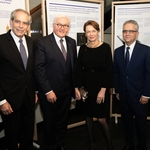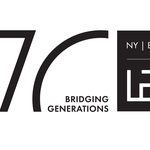What was the Wissenschaft des Judentums?


- Author
- David Sorkin
- Date
- Wed, Mar 25, 2015
The Academic Study of Judaism (Wissenschaft des Judentums) was the key invention of the nineteenth century that transformed Judaism. What was the Academic Study of Judaism? It consisted of the application of the new methods of textual study, especially philology and history, to the study of Jewish texts and the history of Judaism. Scholars (the Humanists) had first developed those methods for the study of classical texts (Greek, Latin) and the history of the ancient world. Other scholars had then applied them to the study of Christianity, stirring major controversies by treating sacred texts historically—as human creations. Beginning around 1819 at the University of Berlin, a group of young Jewish scholars began to appropriate those methods for the study of Jews and Judaism. They wanted to lend the dignity and prestige of the new disciplines to their faith. Those scholars, including Leopold Zunz, Eduard Gans, and Heinrich Heine, understood their enterprise to be imperative for the acquisition of equal rights: Judaism had to be emancipated in order for the Jews to be emancipated.
The Academic Study of Judaism stood in tension with the pious study of Jewish texts. The new scholars wanted to study the origins of a text, its author, its meaning and transmission. They wanted to know how Judaism had changed and developed over the millennia. Their questions were historical and scientific. Such questions could be used to dissolve the sacred and timeless nature of the text. Scholars could employ Wissenschaft to corrode timeless revelation and tradition. Yet scholars could also employ Wissenschaft to support revelation and tradition. Wissenschaft was a malleable tool in the hands of its practitioners.
The Academic Study of Judaism therefore became the shared yet also contested tool of the proponents of all the new versions of Judaism that emerged in the nineteenth century. The advocates of Reform, Conservative, Neo-Orthodoxy and Orthodoxy all developed their own versions of Wissenschaft to create, articulate and legitimate their particular version of Judaism. Indeed, each of the various movements or denominations institutionalized that process by founding scholarly journals and, ultimately, seminaries that taught their particular version of Judaism based on their understanding of Wissenschaft. Similarly, scholars in Central and Eastern Europe developed a Hebrew language variant of Wissenschaft known as Hokhmat Yisrael (“the wisdom of Israel”).
“Science” of Judaism?
Although David Sorkin, along with many other scholars today, describes the Wissenschaft as the “academic” study of Judaism, it has also been called the “Science of Judaism” in publications including the landmark Jewish Encyclopedia of 1906. This translation, which sounds curious to some Anglophone ears, stems from the German usage of the word Wissenschaft (“science”) to describe not only the natural sciences, but all academic disciplines, including even the “softest” of humanities. Both translations, however, accurately convey an approach to the study of Judaism that is empirical, critical, and historical, rooted in the traditions of the Enlightenment and the University rather than the Temple or Yeshiva.
David Sorkin is the Lucy G. Moses Professor of Modern Jewish History at Yale University and previously taught at Brown, Oxford, the University of Wisconsin, and the City University of New York-Graduate Center. He is a member of the Board of Trustees and the Chair of the Academic Advisory Board of Leo Baeck Institute.




